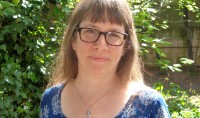Teaching virtues

After I finished my schooling I was lucky enough to receive a postdoctoral teaching fellowship. I needed it: I had very little classroom experience and very little sense of how to navigate the job market. In my first interview at the American Academy of Religion, I replied to a question about what I planned to teach with a question about the needs of the department. My interviewer sighed. “Ms. Paulsell, we all know this is not an idle exercise.” Ouch.
I never heard anything further from that school. But in a stroke of good fortune, the Lilly Fellows Program at Valparaiso University welcomed me into a cohort of five other recent graduates in the humanities and the arts, gave us mentors from the university’s senior faculty, assigned us to teach classes in our respective fields, and required our participation in a weekly colloquium on religion and higher education.
Read our latest issue or browse back issues.
The Lilly Fellows Program offered—and still offers—something unique in academic culture: something deeper and less settled than a place to develop a teaching portfolio and learn some interview skills. It was a chance to explore what it might mean to live out a vocation in church-related higher education. It was an opportunity to explore the possibility that the vocation of teacher and scholar and the vocation of Christian came from the same source.
The program grew out of a work of scholarship: Mark Schwehn’s Exiles from Eden: Religion and the Academic Vocation in America. The book was an attempt to articulate a “religiously informed redescription of academic life,” one that remembered the religious roots of the intellectual virtues and practices that provide the scaffolding of academic pursuits—humility, faith, friendship, and love. His arguments arose from his passionate engagement with Max Weber, Henry Adams, and others, and from the living out of his own vocation. You might agree or disagree with his readings of the modernists, but you knew that those readings came from his own experiments with the many forms that teaching, learning, and scholarship could take.
Mark argued for the cultivation of an academic culture that understood teaching to be its primary organizing principle and practice. By teaching, however, he meant more than what goes on in classrooms. He meant that all of our academic work—including research and administrative work—should attempt to reach across boundaries to communicate with others.
Spending two years with Mark and his colleagues at Valparaiso gave us postdoctoral fellows a chance to think about our vocations. We weren’t sure what we thought of Mark’s thoroughgoing critique of the modern research university. (Graduate school had opened the world for us.) But we were compelled by his vision of a transformed academic culture that understood all academic work as the work of teaching, that believed spiritual values to be irreplaceable dimensions of pedagogy, and that understood love to be at the core of its mission.
As I look at Exiles from Eden 22 years after its publication, I’m shocked to realize how quickly academic culture has changed. I received my first e-mail account at Valparaiso, and only 20 years later online education has reshuffled the terms of the debate about teaching and learning. Great teachers whose teaching translates well to the screen can find themselves richly rewarded. Massive Open Online Courses hold out the promise of a great democratization of education by making it freely available to anyone with access to an Internet connection. The sale of MOOC courses to brick-and-mortar universities, however, has raised questions. When San Jose State University purchased Michael Sandel’s Harvard course on justice, members of SJSU’s philosophy department sent an open letter to Sandel arguing that MOOC courses were being used not for any pedagogical reason but to replace faculty with less-expensive forms of education.
Online education is not the only new influence on academic culture. Since Exiles from Eden was published, schools have replaced many full-time salaried teachers with teachers who are paid a few thousand dollars per course with no benefits. As a result, more and more teachers have become marooned in permanent adjunct positions. What kind of conversation can we have about teaching and the academic vocation with the gap widening between faculty who receive a salary and faculty who still don’t make a living wage?
In light of these realities, is Mark’s vision too optimistic? There is only one way to find out, I think, and that is the way Mark and his colleagues chose: through creative experimentation with alternative visions. By bringing new teachers and scholars into their community every year, they ensured that the weight and heft of their vision would be tested in the crucible of people’s actual lives. They guaranteed that their ideas would be discussed, argued over, and revised. To be in such bold company, even for a short time, left a mark on all of us. Mark’s vision gave us something to aspire to, something to seek and to cultivate through our own experiments.







